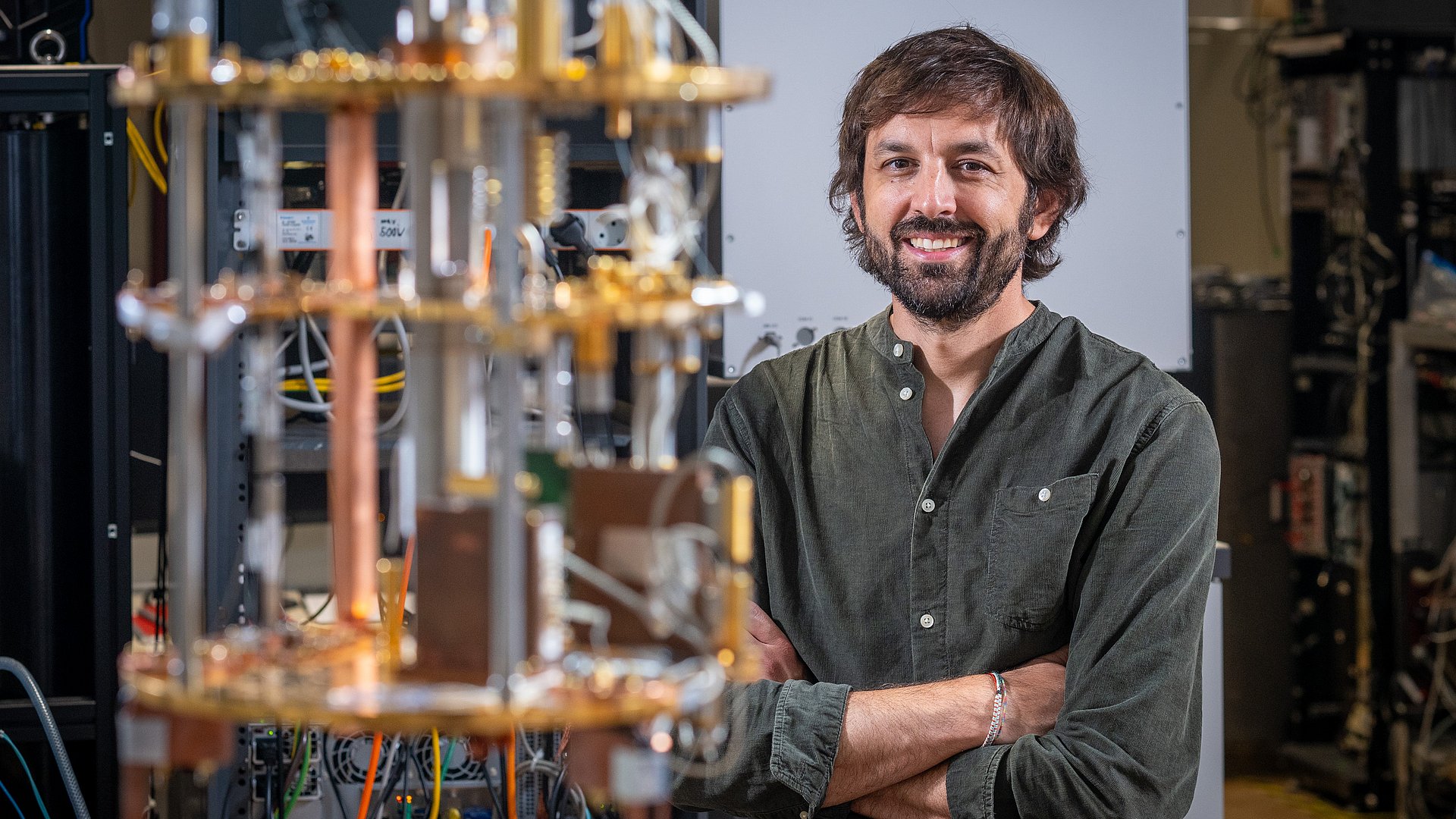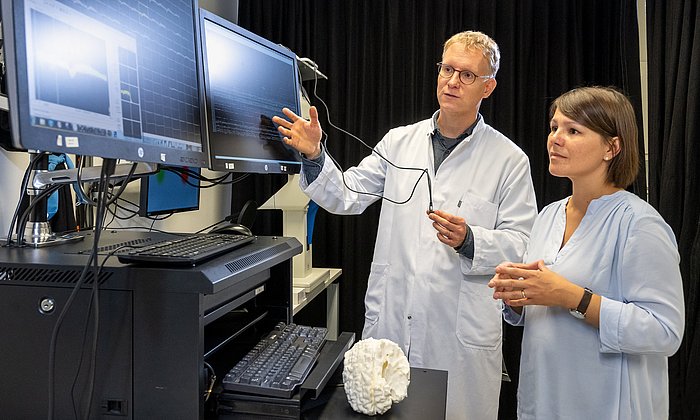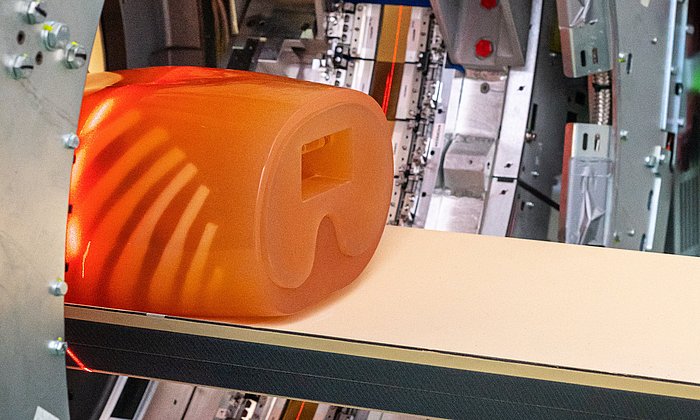European Research Council funds Proofs of Concepts
Six ERC Grants for TUM researchers

Researchers at TUM have received a total of 247 prestigious ERC Grants to date. These are awarded each year in various categories. Proof of Concept Grants are endowed with 150,000 euros.
Prof. Dr. Pramod Bhatotia
Cloud computing platforms are based on distributed systems, in which several computers work together independently. However, distributed systems are vulnerable to attacks and failures, particularly in large, complex environments. Current solutions often have limitations, particularly with regard to programmability, security, and performance. The research initiative called DNA, led by Pramod Bhatotia, is set to optimize cloud computing by making online systems inherently more secure and reliable. The project wants to achieve this by building security directly into specialized network hardware called SmartNICs, essentially giving the network its own small, verifiable security "brain." This approach is intended to not only simplify security for complex cloud environments but also to dramatically boost performance, ensuring smoother and more trustworthy online opportunities for everyone, from individuals using streaming services to businesses relying on critical cloud-based applications.
Pramod Bhatotia is Professor of Distributed and Operating Systems at the TUM School of Computation, Information and Technology. He received an ERC Starting Grant in 2022.
Prof. Dr. Gordon Cheng
Rehabilitation is a challenge for patients with neurologically induced gait disorders. The “Feel my steps” project focuses on a proof of concept in which a newly developed sensory feedback system is being tested. It uses insoles equipped with sensors and machine learning to predict steps. The system, which the researchers are developing in collaboration with physical therapists and neurologists, uses sounds and vibrations to give patients feedback on their posture and gait. The system is used in rehabilitation clinics and at home. The project's aim is to develop a practical prototype and a patent strategy and analyze business models.
Gordon Cheng is Professor of Cognitive Systems at the TUM School of Computation, Information and Technology. He was awarded an ERC Advanced Grant in 2023.
Prof. Dr. Marcus Conrad
The research initiative FERADICATE is a new approach to treating some of the most aggressive and treatment-resistant cancers. These cancers often carry a poor prognosis. At the heart of FERADICATE is ferroptosis, an iron-dependent form of cell death that cancer cells typically evade. By targeting a key protein known as FSP1, Prof. Marcus Conrad and his team aim to push cancer cells into this self-destruction process. The team is currently advancing a new class of FSP1 inhibitors, with a focus on improving their selectivity, efficacy, and suitability for oral use. If successful, FERADICATE could pave the way for clinical trials, offering a promising new weapon in the fight against some of the most challenging cancers.
Marcus Conrad is Professor of Translational Redox Biology at the TUM School of Natural Sciences and Director of the Institute of Metabolism and Cell Death at Helmholtz Munich.
Prof. Dr. Viktor Leis
Few companies currently dominate the cloud services market. This results in high prices, limited innovation, and lock-in effects that make switching to other providers difficult. As part of the CloudStore research project, Viktor Leis and his team are developing cloud-independent infrastructures that can be used on any cloud platform. These infrastructures are intended to reduce lock-in effects, allowing users to easily switch between providers if costs, performance requirements or strategic priorities change. At the same time, the project aims at falling overall costs, stimulating new developments and strengthening the EU's weak market position in this area.
Viktor Leis is Professor of Decentralised Information Systems and Data Management at the TUM School of Computation, Information and Technology.
Dr. Raimund Strauß
Answering the big questions about the universe requires an incredible amount of detailed work and precision. Astrophysicist Dr. Raimund Strauß is researching mysterious dark matter – whose existence is considered theoretically certain, but which has not yet been directly proven. He also works intensively on neutrinos, whose properties are essential for understanding our universe. His team's particle detectors operate at temperatures close to absolute zero. These are achieved using high-performance cooling systems (dry dilution refrigerators). However, these generate mechanical vibrations that severely impair the highly sensitive detectors and quantum computers, which also require very low temperatures to work. To solve this problem, Strauß and his team have developed a patented vibration decoupling system, which he intends to bring to market as part of his new ERC project. Together with an industry partner, he has already founded a spin-off company for this purpose.
Raimund Strauß is a TUM Junior Fellow. He researches and teaches at the Chair of Experimental Physics and Astroparticle Physics at the TUM School of Natural Sciences. His research has already been funded by an ERC Starting Grant in 2018.
Prof. Dr. Fabian Theis
In the CellCourier project, Prof. Fabian Theis and his team are integrating single-cell genomics, advanced computational models and generative AI to address one of the biggest challenges in drug therapy, namely precise targeting. The aim is to precisely program drug delivery via combinatorial cell targeting and generative design of tailored binding peptides. By leveraging data from the Human Cell Atlas and AI models, the researchers generate “surface codes” – molecular maps that guide these binding peptides. Initially, CellCourier will focus on lung diseases such as COPD, cystic fibrosis, and lung cancer. By enabling more precise delivery, CellCourier has the potential to reduce side effects and improve the safety of mRNA-based and other treatments.
Fabian Theis is Professor of Mathematical Modelling of Biological Systems at the TUM School of Computation, Information and Technology and the TUM School of Life Sciences. He is a core member of the Munich Institute of Biomedical Engineering (MIBE), the Munich Data Science Institute (MDSI) and the Munich Center for Machine Learning (MCML). At Helmholtz Munich, he is Director of the Computational Health Center and of the Institute for Computational Biology. Fabian Theis was awarded an ERC Starting Grant in 2010 and an ERC Advanced Grant in 2022.


